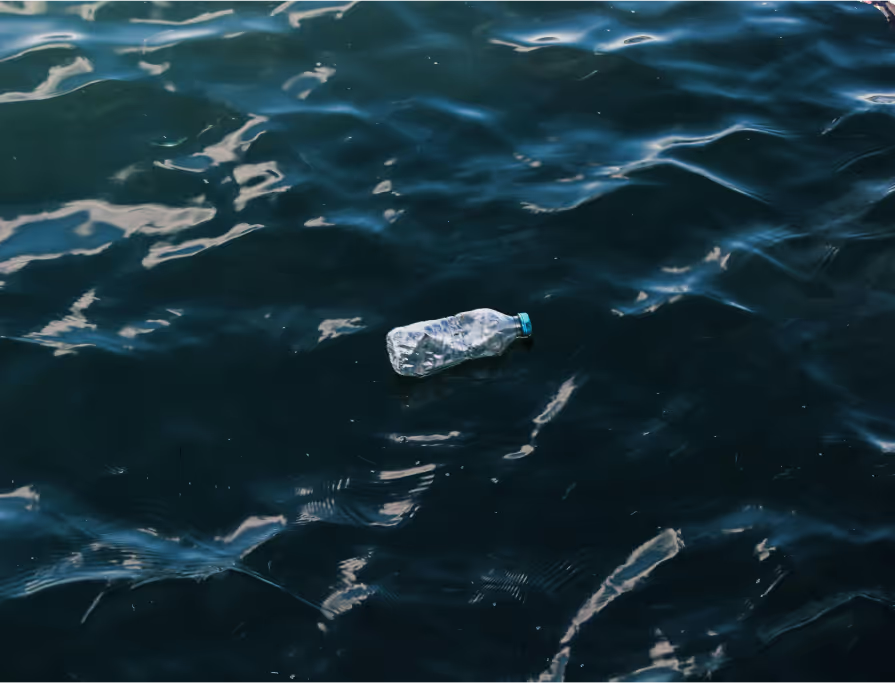The sight of plastic waste in the ocean, especially after heavy rains, is a heartbreaking reality for divers and ocean lovers. In areas with poor waste management, the problem is even more pronounced, with plastic debris suffocating marine ecosystems. Dive centers, positioned at the heart of these environments, have a unique opportunity to lead the fight against plastic pollution.
By adopting plastic-free practices, organizing impactful initiatives like beach cleanups, and transitioning to paperless operations, dive centers can protect the oceans while improving operational efficiency. Here’s how your dive center can make a difference—and how Diversdesk can help.
Plastic-Free Operations: A Dive Center’s Responsibility Marine ecosystems are vital not only for the health of our planet but also for the diving industry itself. Yet, millions of tons of plastic enter the ocean each year, threatening marine life and the experiences we cherish. Dive centers can take proactive steps to reduce their environmental impact:
- Eliminate Single-Use Plastics Say goodbye to plastic straws, water bottles, and cutlery. Replace them with reusable alternatives and encourage divers to bring their own eco-friendly gear.
Pro Tip: Offer branded reusable water bottles as part of your dive packages, creating both a sustainable and memorable experience.
-
Stock Sustainable Gear Work with suppliers to offer sustainable dive gear, such as fins and masks made from recycled materials. Promote mesh bags instead of plastic for carrying equipment.
-
Recycle and Upcycle Set up visible recycling bins at your dive center and explore creative ways to upcycle materials. Old ropes or nets, for example, can be repurposed for decorations or equipment storage.
-
Run Beach and Dive Site Cleanups Beach cleanups remain one of the most impactful ways dive centers can contribute to ocean health. After heavy rains, plastics from inland areas often flood into coastal waters. Organizing cleanup events not only removes waste but also raises awareness among participants.
Why It Matters: These events build community, inspire change, and have a tangible impact by removing tons of waste from shorelines and reefs. Heartbreaking Reality: Oceans After the Rain After heavy rains, the influx of plastic into the ocean can be overwhelming, especially in areas with inadequate waste management. Divers often witness firsthand the heartbreaking sight of reefs and marine life entangled in plastic debris. These moments serve as stark reminders of why sustainable practices are urgently needed.
By addressing this issue, dive centers not only protect the environment but also offer divers a cleaner, more fulfilling underwater experience.
Paperless Operations: The Overlooked Sustainability Solution While plastic-free initiatives often take the spotlight, transitioning to paperless operations is an equally significant step toward sustainability. Dive centers generate a surprising amount of paper waste through printed schedules, waivers, receipts, and dive logs. Eliminating this waste streamlines operations while protecting the environment.
Benefits of Going Paperless: Reduce Waste: No more printed waivers, booking forms, or dive logs—everything is digital. Improve Efficiency: Access and manage records instantly without sifting through paper stacks. Enhance Customer Experience: Simplify the booking process with digital waivers and online payments, offering a seamless experience.
How Diversdesk Supports Plastic-Free and Paperless Dive Centers
Diversdesk, a comprehensive dive center management software, is designed to help dive centers adopt sustainable practices while improving efficiency. Here’s how it supports your eco-friendly goals:
Digital Booking and Payments Diversdesk enables customers to book their dives, complete waivers, and make payments online, eliminating the need for printed materials.
Automated Communication Replace paper-based notifications by email notifications. Diversdesk automates this process, ensuring timely communication while staying paperless.
Centralized Data Management Store and manage all customer and booking information digitally, reducing the need for physical files and making it easier to retrieve important records.
Streamlined Invoicing and Reporting Generate invoices, track payments, and produce business reports digitally, helping to save paper while keeping your operations organized and efficient.
Enhanced Efficiency Across Operations By automating repetitive tasks like scheduling and payment processing, Diversdesk frees up time for your team to focus on delivering exceptional diving experiences.
Celebrating Positive Impact
The diving community is already making strides in the fight against plastic pollution:
Beach Cleanup Success Stories: Dive centers around the world have removed tons of waste from beaches and dive sites, often sparking ongoing community efforts. Innovative Products: Many operators now stock gear made from recycled ocean plastics, supporting the circular economy. Raising Awareness: Cleanup events and sustainability workshops leave lasting impressions on participants, inspiring them to adopt eco-friendly habits. Why Sustainability Is Good for Business Beyond its environmental benefits, sustainability enhances your dive center’s reputation and profitability:
Attract Eco-Conscious Divers: Modern divers actively seek operators who prioritize sustainability. Cut Costs: Replacing disposable plastics and reducing paper consumption saves money in the long run. Boost Team Morale: Staff take pride in working for a dive center that values environmental stewardship. Final Thoughts The ocean’s health is integral to the diving industry’s future. By adopting plastic-free practices, organizing impactful cleanup events, and transitioning to paperless operations, dive centers can lead the way in sustainability. Tools like Diversdesk make it easier than ever to manage operations efficiently while reducing waste.
Take the first step today. Dive into sustainability, protect the oceans, and inspire a new wave of eco-conscious divers to join your efforts. Together, we can create a cleaner, greener future for the marine environments we treasure.
